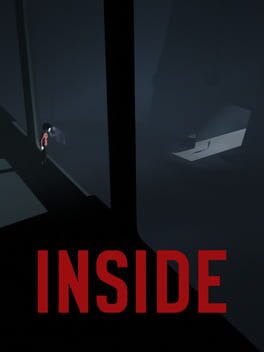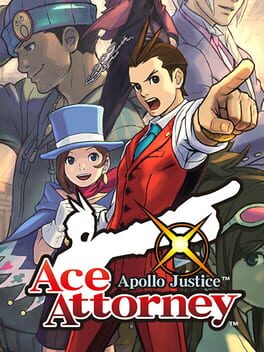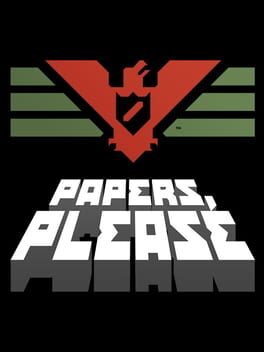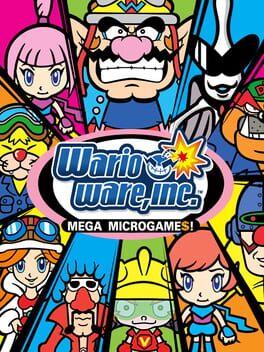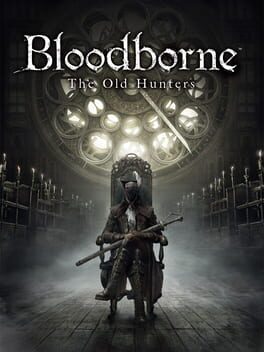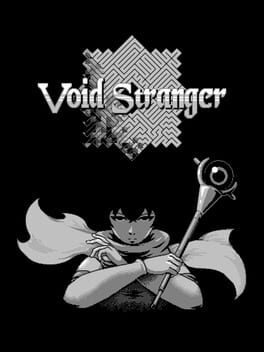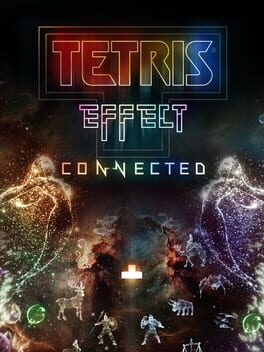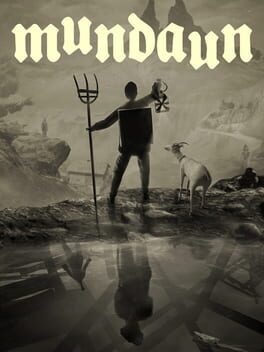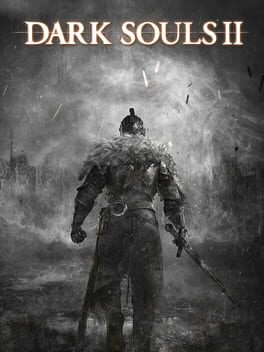antoinebeaumal
BACKER
1996
Boy, oh boy, I've been putting off this moment for a long time. Quick background: I was born with the Super Nintendo. My entire gaming discovery revolved around 2D platformers (the Donkey Kong series in my case). I played the N64 vicariously at friends' houses because, according to my parents, 'why get a new Nintendo when you already have one at home?' (the original 'meme' before its time). Anyway, all of this to say that I don't have nostalgia for this game. Maybe a tad bit of envy for not having had an N64? Perhaps.
After 4 hours of trying Mario 64, I threw in the towel. I can't get used to the camera controls. I feel completely insecure in all my movements. To make matters worse, I'm frustrated. Maybe the emulated version through the Nintendo Switch Online subscription doesn't do justice, or isn't as good as the version offered by the recently released Super Mario 3D pack, but overall, it's outrageously expensive if you're a fan of physical games.
It's been a long time since I've had such a frustrating gaming experience.
FR : Boy, oh boy, j’ai longtemps repoussé ce moment. Rapide perspective : je suis né avec la super nintendo. Toute ma découverte s’est fait autour du plateformer 2D (la série Donkey-kong dans mon cas). J’ai joué à la N64 par procuration chez des amis car selon mes parents : « pourquoi avoir une nouvelle nintendo alors que tu as déjà une nintendo à la maison ? » (le meme avant l’heure). Bref, tout ça pour dire que je n’ai pas de nostalgie pour ce jeu. Peut-être un chouïa de jalousie de ne pas avoir eu de N64 ? Peut-être.
Après 4 heures d’essai sur Mario 64, j’ai jeté l’éponge. Je n’arrive pas à me faire au contrôle de la caméra. Je me sens totalement insécure dans tous mes mouvements. Pire que tout, je rage. Peut-être que la version émulée sur via l’abonnement Nintendo Live Switch ne rend pas justice n’est pas aussi bien que la version proposée par le pack Super Mario 3D récemment sorti mais globalement hors de prix si on aime les jeux en physique.
Ça fait longtemps que je n’ai pas une expérience de jeu aussi frustrante.
After 4 hours of trying Mario 64, I threw in the towel. I can't get used to the camera controls. I feel completely insecure in all my movements. To make matters worse, I'm frustrated. Maybe the emulated version through the Nintendo Switch Online subscription doesn't do justice, or isn't as good as the version offered by the recently released Super Mario 3D pack, but overall, it's outrageously expensive if you're a fan of physical games.
It's been a long time since I've had such a frustrating gaming experience.
FR : Boy, oh boy, j’ai longtemps repoussé ce moment. Rapide perspective : je suis né avec la super nintendo. Toute ma découverte s’est fait autour du plateformer 2D (la série Donkey-kong dans mon cas). J’ai joué à la N64 par procuration chez des amis car selon mes parents : « pourquoi avoir une nouvelle nintendo alors que tu as déjà une nintendo à la maison ? » (le meme avant l’heure). Bref, tout ça pour dire que je n’ai pas de nostalgie pour ce jeu. Peut-être un chouïa de jalousie de ne pas avoir eu de N64 ? Peut-être.
Après 4 heures d’essai sur Mario 64, j’ai jeté l’éponge. Je n’arrive pas à me faire au contrôle de la caméra. Je me sens totalement insécure dans tous mes mouvements. Pire que tout, je rage. Peut-être que la version émulée sur via l’abonnement Nintendo Live Switch ne rend pas justice n’est pas aussi bien que la version proposée par le pack Super Mario 3D récemment sorti mais globalement hors de prix si on aime les jeux en physique.
Ça fait longtemps que je n’ai pas une expérience de jeu aussi frustrante.
1998
I remember playing this game in the year 2000 (I still have my copy, bought second-hand for 30 CHF) and finishing it with a certain pride (I was 13 at the time), but I found the game a bit short (I checked with the memory card from that time: 13 hours and 30 minutes of gameplay, not something to brag about either). I remember thinking of this game as 'kind of like GoldenEye64, but not as good, but cool story because the dialogues are spoken.' This perspective makes me laugh now because if there's a game that hasn't aged well, it's GoldenEye64, and if there's one that remains interesting today, it's Metal Gear Solid.
The game impresses me with its megalomaniacal desire to shine in every aspect: the cinematics, the soundtrack, the dialogues, the play with the materiality of the PlayStation (the famous 'psycho-mantis' moment), and the boss fights. Let's be clear, if MSG were a movie, it would be a fabulous B-movie close to a soap opera, given how frequent the twists and turns are. The ultra-serious and earnest tone of the dialogues sometimes border on the ridiculous, but that's the charm of this game. Obviously, it's clearly misogynistic, and 'Solid Snake' (not at all a phallic name...) is clearly in heat every time he talks to a female character.
A beautifully fraudulent aspect of the game is its subtitle: Tactical espionage action. Indeed, the espionage part of the game is very, very short. MSG1 is more of a narrative boss rush. Despite its lofty ambitions, the game consists of only a handful of areas, and 'run backs' are frequent. But, in the end, who cares? The boss fights and the dialogues are what make the game interesting.
I note that for a PS1 game, the graphics are impressive, as it tries to make the most of the available hardware. PS1 games have an unparalleled 3D style with a charm of their own that I always found superior to the N64 of that time.
The game impresses me with its megalomaniacal desire to shine in every aspect: the cinematics, the soundtrack, the dialogues, the play with the materiality of the PlayStation (the famous 'psycho-mantis' moment), and the boss fights. Let's be clear, if MSG were a movie, it would be a fabulous B-movie close to a soap opera, given how frequent the twists and turns are. The ultra-serious and earnest tone of the dialogues sometimes border on the ridiculous, but that's the charm of this game. Obviously, it's clearly misogynistic, and 'Solid Snake' (not at all a phallic name...) is clearly in heat every time he talks to a female character.
A beautifully fraudulent aspect of the game is its subtitle: Tactical espionage action. Indeed, the espionage part of the game is very, very short. MSG1 is more of a narrative boss rush. Despite its lofty ambitions, the game consists of only a handful of areas, and 'run backs' are frequent. But, in the end, who cares? The boss fights and the dialogues are what make the game interesting.
I note that for a PS1 game, the graphics are impressive, as it tries to make the most of the available hardware. PS1 games have an unparalleled 3D style with a charm of their own that I always found superior to the N64 of that time.
2016
This review contains spoilers
We cannot deny that this game quickly establishes a unique horror atmosphere and creates genuinely cinematic scenes. The camera operates like a tracking shot, and it's the impossibility of accessing the boy's vision (looking forward or backward) that creates this sense of agoraphobia. Some scenes are visually gripping, especially the 'dead pig farm' at the beginning and the 'upside-down zombies.' The grand finale, where our solitary character, who has been the prey of the entire environment until now, becomes the predator, is a masterstroke.
No doubt a 'non-gamer reviewer' could write a review as I just did. One could then stamp it with the label 'Masterpiece, 10/10.' In this sense, it's important to note that Inside is an 'artist' game that has received grants supporting artistic production. Inside is a game that draws strength from artistic mediums such as cinema, painting, dystopian novels, and ambient music. The game aims to be an artistic masterpiece that could potentially attract a broader audience than the limited 'puzzle-platformer' audience. For gamers who are enthusiasts of this genre, Inside may be too simple, too short, and too repetitive. I personally found it less interesting than Limbo (its predecessor) in terms of gameplay.
However, I believe it's essential not to impose expectations that Inside cannot meet. Inside manages to be strange, surprising, but above all, accessible. It's the kind of game that elevates video games to the status of a medium with artistic potential. It could also be the first game for a 'non-gamer.' So, let's not dismiss it, shall we?
FR : On ne peut nier que ce jeu sait rapidement construire une ambiance horrifique unique et créer des scènes véritablement cinématographiques. La caméra fonctionne comme un traveling et c’est l’impossibilité d’accéder à la vision du garçon (voir en avant ou en arrière) qui créer ce sentiment d'agoraphobie. Certaines scènes sont picturalement prenantes, je pense notamment à « ferme aux cochons morts » du début et aux « zombies pendus à l’envers ». Le grand final où notre personnage solitaire, qui est, jusque-là, la proie de tout l’environnement devient le prédateur est un coup de maitre.
Pas de doute qu’un « non-gamer reviewer » pourrait écrire une critique comme je viens de le faire. On y collerait alors le tampon « Masterpiece, 10/10». En ce sens il est important de noter que Inside est un jeu « d’artiste » qui a touché des subventions qui soutiennent la production artistique. Inside est un jeu qui emprunte sa force à des médiums artistiques tel que le cinéma, la peinture, le roman dystopique et la musique ambient. Le jeu se veut une épure artistique qui pourrait potentiellement attirer un public plus large que le public restreint des « puzzle plate-former ». Pour ces gamers amateurs du genre, Inside est trop simple, trop court, trop répétitif. J’ai personnellement trouvé moins intéressant que Limbo (son prédécesseur) niveau gameplay.
Je pense toutefois qu’il ne faut pas plaquer des attentes qu’Inside ne peut répondre. Inside réussit à être étrange, surprenant, mais surtout accessible. Typiquement le genre de jeu qui d’élever le jeu vidéo au rang de médium à potentialité artistique. Cela pourrait aussi être le premier jeu pour un-e « non-gamer ». Alors on ne va pas cracher dessus, non ?
No doubt a 'non-gamer reviewer' could write a review as I just did. One could then stamp it with the label 'Masterpiece, 10/10.' In this sense, it's important to note that Inside is an 'artist' game that has received grants supporting artistic production. Inside is a game that draws strength from artistic mediums such as cinema, painting, dystopian novels, and ambient music. The game aims to be an artistic masterpiece that could potentially attract a broader audience than the limited 'puzzle-platformer' audience. For gamers who are enthusiasts of this genre, Inside may be too simple, too short, and too repetitive. I personally found it less interesting than Limbo (its predecessor) in terms of gameplay.
However, I believe it's essential not to impose expectations that Inside cannot meet. Inside manages to be strange, surprising, but above all, accessible. It's the kind of game that elevates video games to the status of a medium with artistic potential. It could also be the first game for a 'non-gamer.' So, let's not dismiss it, shall we?
FR : On ne peut nier que ce jeu sait rapidement construire une ambiance horrifique unique et créer des scènes véritablement cinématographiques. La caméra fonctionne comme un traveling et c’est l’impossibilité d’accéder à la vision du garçon (voir en avant ou en arrière) qui créer ce sentiment d'agoraphobie. Certaines scènes sont picturalement prenantes, je pense notamment à « ferme aux cochons morts » du début et aux « zombies pendus à l’envers ». Le grand final où notre personnage solitaire, qui est, jusque-là, la proie de tout l’environnement devient le prédateur est un coup de maitre.
Pas de doute qu’un « non-gamer reviewer » pourrait écrire une critique comme je viens de le faire. On y collerait alors le tampon « Masterpiece, 10/10». En ce sens il est important de noter que Inside est un jeu « d’artiste » qui a touché des subventions qui soutiennent la production artistique. Inside est un jeu qui emprunte sa force à des médiums artistiques tel que le cinéma, la peinture, le roman dystopique et la musique ambient. Le jeu se veut une épure artistique qui pourrait potentiellement attirer un public plus large que le public restreint des « puzzle plate-former ». Pour ces gamers amateurs du genre, Inside est trop simple, trop court, trop répétitif. J’ai personnellement trouvé moins intéressant que Limbo (son prédécesseur) niveau gameplay.
Je pense toutefois qu’il ne faut pas plaquer des attentes qu’Inside ne peut répondre. Inside réussit à être étrange, surprenant, mais surtout accessible. Typiquement le genre de jeu qui d’élever le jeu vidéo au rang de médium à potentialité artistique. Cela pourrait aussi être le premier jeu pour un-e « non-gamer ». Alors on ne va pas cracher dessus, non ?
The first game in the series that I've played. I've never been so relieved to see the end credits. This game is both boring and addictive at the same time. I was completely blown away by episode 1 and thoroughly disappointed by the rest. I think the highly repetitive nature, especially in the music, drove me completely 'loco.' Not sure if I'll continue with the series."
FR :
Premier jeu de la série auquel je joue. Ça fait que je n’avais été aussi soulagé à voir les crédits de fin apparaitre. Ce jeu est à la fois ennuyant et addictif. J’ai été totalement soufflé par l’épisode 1 et complètement déçu par la suite. Je crois que l’aspect très répétitif notamment des musiques m’a rendu complètement « loco ». Pas sur de faire la suite.
FR :
Premier jeu de la série auquel je joue. Ça fait que je n’avais été aussi soulagé à voir les crédits de fin apparaitre. Ce jeu est à la fois ennuyant et addictif. J’ai été totalement soufflé par l’épisode 1 et complètement déçu par la suite. Je crois que l’aspect très répétitif notamment des musiques m’a rendu complètement « loco ». Pas sur de faire la suite.
Will a comment on BOTW made by a stranger on blacklogged almost 8 years after its release have an impact on the world? Obviously not. Yet, I think it is interesting to question our relationship with open-world games, of which BOTW is, for many, the standard-bearer.
To provide some context: I am playing BOTW for the first time, having spent a significant part of my life playing WOW, and for the past year, I have been trying to catch up on the major successes of recent years. I am also a player of "Souls" games and have spent several hundred hours on Elden Ring.
Why such a preamble? Because my relationship with "open-world" games is not neutral and is no longer the same in 2024; I am even exhausted by it. Spending hours pressing 'w' / up arrow and observing an "infinite" world exhausts me. I no longer have the energy to invest a hundred hours in a game collecting XXX items, doing MMO-like side quests that essentially involve going to a certain place, doing X things, and getting X rewards. The pseudo-freedom of the open world offered by developers annoys me: they place too much trust in players. However, and WOW taught me this, players are experts at ruining their gaming experience; we should not trust them.
The question now is: can BOTW be approached as a linear game, like a "classic" Zelda? Well, not really. If we consider the game not as a world to explore but as a mission to accomplish (kill Ganon) using the tools the game provides, then the game reveals a lot of weaknesses.
The game can quickly become artificially difficult, especially in the fight against Kohga in Vah’Naboris. Every mistake is instant death.
All resources (food, weapons, and shields) become a hindrance to progress. You end up having to farm them. The weapon-breaking system completely discouraged me from exploring; I wanted to save my resources as much as possible.
The open-world aspect makes almost everything "skippable": it is possible to finish the game by killing practically no enemies.
Once the power of Regali is obtained, exploration as such comes to an end in my opinion. It is possible to completely skip Hyrule Castle at the end of the game. What I expected to be a "mega-shrine +++" turned out to be a courtesy visit to Ganon.
Obviously, I am exaggerating a bit, and it is undeniable that the game is simply beautiful in many aspects, especially graphically and musically.
Gasp… I think I am getting old and expecting something else from video games than being 'infinite interactive toys.' Perhaps I am expecting games to be controlled by developers and not left to players. Unfortunately, I have the impression that Tears of the Kingdom continues in this direction by adding 'Minecraft'-like crafting.
FR :
Est-ce qu’un commentaire sur BOTW fait par un inconnu sur blacklogged presque 8 ans après sa sortie va-t-il avoir un impact sur le monde ? Évidemment que non. Pourtant, je pense qu’il est intéressant d’interroger notre rapport aux jeux open-world dont BOTW est, pour beaucoup, l’étendard d’un standard.
Pour donner quelques éléments de contextes : je joue pour la première fois à BOTW, j’ai passé une majeure partie de ma vie à jouer à WOW et cela fait maintenant 1 an que je tente de rattraper mon retard sur les grands succès de ces dernières années. Je suis aussi un joueur de « Souls » et j’ai passé plusieurs centaines d’heures sur Elden Ring.
Pourquoi un tel préambule ? Parce mon rapport aux jeux « open-world » n’est pas neutre et n’est plus le même en 2024 : j’en suis même épuisé. Passer des heures à presser « w » / flèche directionnel en haut et observer un monde « infini » m’épuise. Je n’ai plus la force d’investir une centaine d’heure dans un jeu à collecter XXX items, faire des sides-quests « à la MMO » qui consistent essentiellement à aller à tel endroit faire X choses et obtenir X récompenses. La pseudo liberté de l’open world que me propose les développeurs m’exaspèrent : ils placent trop de confiance dans les joueurs. Hors, et WOW me l’a appris, les joueurs sont les experts pour ruiner leur expérience de jeu, on ne doit pas leur faire confiance.
La question maintenant est : est-ce que BOTW peut-il être abordé comme un jeu linéaire, comme un zelda « classique » ? Et bien, pas vraiment. Si on considère le jeu non pas comme un monde à explorer, mais une mission à accomplir (tuer Ganon) en utilisant les outils que le jeu nous propose, alors le jeu révèle un grand nombre de faiblesses.
1. Le jeu peut rapidement devenir artificiellement difficile, notamment sur la fight contre Kohga dans Vah’Naboris. Chaque erreur est une mort instantanée.
2. Toutes les ressources (nourriture, arme et bouclier) deviennent un frein à la progression. On se retrouve obliger d’aller les farm. Ce système d’armes qui se détruit m’a totalement découragé à aller explorer, je voulais ainsi économiser le plus possible mes ressources.
3. L’aspect open-world rend à peu près tout « skippable » : il est possible de finir le jeu en ne tuant pratiquement aucun ennemi.
4. Une fois le pouvoir de Regali obtenu, l’exploration en tant que telle prend fin à mon sens. Il est possible de totalement passer le château d’Hyrule à la fin du jeu. La où je m’attendais à un « mega-shrine +++ » s’est révélé être une visite de courtoisie à Ganon.
Évidemment, je force un peu le trait, et il est indéniable que le jeu est tout simplement magnifique sur beaucoup d’aspects, notamment graphiquement et musicalement.
Gasp… Je pense que je deviens vieux et que j’attends autre chose des jeux vidéo que d’être des « jouets interactifs infinis ». J’attends peut-être que les jeux soient contrôlés par les développeurs et non pas laissés aux joueurs.
J’ai malheureusement l’impression que Tears of the Kingdom continue dans cette voie en y ajoutant des craft « à la Minecraft ».
To provide some context: I am playing BOTW for the first time, having spent a significant part of my life playing WOW, and for the past year, I have been trying to catch up on the major successes of recent years. I am also a player of "Souls" games and have spent several hundred hours on Elden Ring.
Why such a preamble? Because my relationship with "open-world" games is not neutral and is no longer the same in 2024; I am even exhausted by it. Spending hours pressing 'w' / up arrow and observing an "infinite" world exhausts me. I no longer have the energy to invest a hundred hours in a game collecting XXX items, doing MMO-like side quests that essentially involve going to a certain place, doing X things, and getting X rewards. The pseudo-freedom of the open world offered by developers annoys me: they place too much trust in players. However, and WOW taught me this, players are experts at ruining their gaming experience; we should not trust them.
The question now is: can BOTW be approached as a linear game, like a "classic" Zelda? Well, not really. If we consider the game not as a world to explore but as a mission to accomplish (kill Ganon) using the tools the game provides, then the game reveals a lot of weaknesses.
The game can quickly become artificially difficult, especially in the fight against Kohga in Vah’Naboris. Every mistake is instant death.
All resources (food, weapons, and shields) become a hindrance to progress. You end up having to farm them. The weapon-breaking system completely discouraged me from exploring; I wanted to save my resources as much as possible.
The open-world aspect makes almost everything "skippable": it is possible to finish the game by killing practically no enemies.
Once the power of Regali is obtained, exploration as such comes to an end in my opinion. It is possible to completely skip Hyrule Castle at the end of the game. What I expected to be a "mega-shrine +++" turned out to be a courtesy visit to Ganon.
Obviously, I am exaggerating a bit, and it is undeniable that the game is simply beautiful in many aspects, especially graphically and musically.
Gasp… I think I am getting old and expecting something else from video games than being 'infinite interactive toys.' Perhaps I am expecting games to be controlled by developers and not left to players. Unfortunately, I have the impression that Tears of the Kingdom continues in this direction by adding 'Minecraft'-like crafting.
FR :
Est-ce qu’un commentaire sur BOTW fait par un inconnu sur blacklogged presque 8 ans après sa sortie va-t-il avoir un impact sur le monde ? Évidemment que non. Pourtant, je pense qu’il est intéressant d’interroger notre rapport aux jeux open-world dont BOTW est, pour beaucoup, l’étendard d’un standard.
Pour donner quelques éléments de contextes : je joue pour la première fois à BOTW, j’ai passé une majeure partie de ma vie à jouer à WOW et cela fait maintenant 1 an que je tente de rattraper mon retard sur les grands succès de ces dernières années. Je suis aussi un joueur de « Souls » et j’ai passé plusieurs centaines d’heures sur Elden Ring.
Pourquoi un tel préambule ? Parce mon rapport aux jeux « open-world » n’est pas neutre et n’est plus le même en 2024 : j’en suis même épuisé. Passer des heures à presser « w » / flèche directionnel en haut et observer un monde « infini » m’épuise. Je n’ai plus la force d’investir une centaine d’heure dans un jeu à collecter XXX items, faire des sides-quests « à la MMO » qui consistent essentiellement à aller à tel endroit faire X choses et obtenir X récompenses. La pseudo liberté de l’open world que me propose les développeurs m’exaspèrent : ils placent trop de confiance dans les joueurs. Hors, et WOW me l’a appris, les joueurs sont les experts pour ruiner leur expérience de jeu, on ne doit pas leur faire confiance.
La question maintenant est : est-ce que BOTW peut-il être abordé comme un jeu linéaire, comme un zelda « classique » ? Et bien, pas vraiment. Si on considère le jeu non pas comme un monde à explorer, mais une mission à accomplir (tuer Ganon) en utilisant les outils que le jeu nous propose, alors le jeu révèle un grand nombre de faiblesses.
1. Le jeu peut rapidement devenir artificiellement difficile, notamment sur la fight contre Kohga dans Vah’Naboris. Chaque erreur est une mort instantanée.
2. Toutes les ressources (nourriture, arme et bouclier) deviennent un frein à la progression. On se retrouve obliger d’aller les farm. Ce système d’armes qui se détruit m’a totalement découragé à aller explorer, je voulais ainsi économiser le plus possible mes ressources.
3. L’aspect open-world rend à peu près tout « skippable » : il est possible de finir le jeu en ne tuant pratiquement aucun ennemi.
4. Une fois le pouvoir de Regali obtenu, l’exploration en tant que telle prend fin à mon sens. Il est possible de totalement passer le château d’Hyrule à la fin du jeu. La où je m’attendais à un « mega-shrine +++ » s’est révélé être une visite de courtoisie à Ganon.
Évidemment, je force un peu le trait, et il est indéniable que le jeu est tout simplement magnifique sur beaucoup d’aspects, notamment graphiquement et musicalement.
Gasp… Je pense que je deviens vieux et que j’attends autre chose des jeux vidéo que d’être des « jouets interactifs infinis ». J’attends peut-être que les jeux soient contrôlés par les développeurs et non pas laissés aux joueurs.
J’ai malheureusement l’impression que Tears of the Kingdom continue dans cette voie en y ajoutant des craft « à la Minecraft ».
2013
Objectively, I spent more than 6 hours in panic, fearing penalties and the death of family. The sound of the fax indicating my mistakes will remain etched in my memory like a sound of terror. For 6 hours, I was lied to straight to my face, corrupted, broke up families, and allowed the law of retaliation and drug trafficking.
But for 6 hours, I also saved lives, offered a box of pencils (which costs as much as rent, that damn kid better take care of it), allowed a couple to reunite, and sparked a revolution. In short, I had a good time.
Note: I do not recommend playing this game on a smartphone or tablet – digital paperwork quickly becomes unmanageable on small screens. For a VR experience of the game, play it on an ill-suited desk and an unbalanced stool. Let a draft cool the room and drink bad chicory.
FR : Papers, please
Objectivement, j’ai passé plus de 6 heures en panique, craignant les pénalités et la mort de famille. Le son du fax indiquant mes erreurs restera ancré dans ma mémoire comme un son de terreur.
Pendant 6 heures, on m’a menti au visage, j’ai été corrompu, j’ai brisé des familles et autorisé la loi du talion et le trafic de drogue.
Mais pendant 6 heures, j’ai aussi sauvé des vies, offert une boite de crayons (qui coute le prix d’un loyer, il a intérêt à en prendre soin ce foutu gosse), permis à un couple de se retrouver et qu’une révolution se mette en place.
Bref, j’ai passé un bon moment.
Note : je ne recommande pas de jouer à ce jeu sur smartphone ou tablette : la paperasse numérique devient rapidement ingérable sur des petits formats d’écran. Pour une expérience VR du jeu, jouez plutôt sur un bureau mal adapté et un tabouret déséquilibré. Laissez un courant d’air refroidir la pièce et buvez de la mauvaise chicorée.
But for 6 hours, I also saved lives, offered a box of pencils (which costs as much as rent, that damn kid better take care of it), allowed a couple to reunite, and sparked a revolution. In short, I had a good time.
Note: I do not recommend playing this game on a smartphone or tablet – digital paperwork quickly becomes unmanageable on small screens. For a VR experience of the game, play it on an ill-suited desk and an unbalanced stool. Let a draft cool the room and drink bad chicory.
FR : Papers, please
Objectivement, j’ai passé plus de 6 heures en panique, craignant les pénalités et la mort de famille. Le son du fax indiquant mes erreurs restera ancré dans ma mémoire comme un son de terreur.
Pendant 6 heures, on m’a menti au visage, j’ai été corrompu, j’ai brisé des familles et autorisé la loi du talion et le trafic de drogue.
Mais pendant 6 heures, j’ai aussi sauvé des vies, offert une boite de crayons (qui coute le prix d’un loyer, il a intérêt à en prendre soin ce foutu gosse), permis à un couple de se retrouver et qu’une révolution se mette en place.
Bref, j’ai passé un bon moment.
Note : je ne recommande pas de jouer à ce jeu sur smartphone ou tablette : la paperasse numérique devient rapidement ingérable sur des petits formats d’écran. Pour une expérience VR du jeu, jouez plutôt sur un bureau mal adapté et un tabouret déséquilibré. Laissez un courant d’air refroidir la pièce et buvez de la mauvaise chicorée.
2015
I have finally finished Bloodborne, and I'm ending it with an unpleasant feeling: I completed the main game without realizing that I wouldn't be able to access the DLC content (and I can tell you that Father Gascoigne in NG+ is truly nerve-wracking; I gave up after 10 attempts). These sometimes critical mechanics that FromSoftware employs can be infuriating, although I admire their boldness in many other aspects. This, along with the blood vial farming, are two aspects that particularly frustrated me.
However, let's not kid ourselves; the game is simply incredible. The eerie Lovecraftian atmosphere is masterfully depicted. This game has taught me to play better, and I look forward to starting another Souls game to see the difference. Few games involve us as players to push ourselves to this extent.
I will cherish an unforgettable memory of it. I will replay it someday to experience the DLC in NG and not NG+...
FR: Je viens enfin de terminer Bloodborne et je le termine avec une sensation désagréable : j’ai terminé le jeu principal sans penser que je nous pourrais pas accéder au contenu du DLC (et je peux vous que Father Gascoigne en NG+ est vraiment une torture pour les nerfs, j’ai abandonné après 10 tentatives). Ces mécaniques parfois critiques qu’opèrent parfois FromSoftware m’exaspère bien que j’admire leur radicalité pour beaucoup d’autres aspects. Ceci et le farm bloodvials sont 2 aspects qui m’ont particulièrement enragé.
Toutefois, on ne vas pas se mentir, le jeu est tout simplement incroyable : l’univers glauquissime de Lovecraft y est très bien rendu. Ce jeu m’a simplement appris à mieux jouer et je me réjouis de relancer un autre souls pour voir la différence. Rare sont les jeu qui nous implique en tant que joueur à nous dépasser à ce point.
J’en garderai un souvenir immémorable. Je le relancerai un jour pour faire le DLC en NG et non en NG+…
However, let's not kid ourselves; the game is simply incredible. The eerie Lovecraftian atmosphere is masterfully depicted. This game has taught me to play better, and I look forward to starting another Souls game to see the difference. Few games involve us as players to push ourselves to this extent.
I will cherish an unforgettable memory of it. I will replay it someday to experience the DLC in NG and not NG+...
FR: Je viens enfin de terminer Bloodborne et je le termine avec une sensation désagréable : j’ai terminé le jeu principal sans penser que je nous pourrais pas accéder au contenu du DLC (et je peux vous que Father Gascoigne en NG+ est vraiment une torture pour les nerfs, j’ai abandonné après 10 tentatives). Ces mécaniques parfois critiques qu’opèrent parfois FromSoftware m’exaspère bien que j’admire leur radicalité pour beaucoup d’autres aspects. Ceci et le farm bloodvials sont 2 aspects qui m’ont particulièrement enragé.
Toutefois, on ne vas pas se mentir, le jeu est tout simplement incroyable : l’univers glauquissime de Lovecraft y est très bien rendu. Ce jeu m’a simplement appris à mieux jouer et je me réjouis de relancer un autre souls pour voir la différence. Rare sont les jeu qui nous implique en tant que joueur à nous dépasser à ce point.
J’en garderai un souvenir immémorable. Je le relancerai un jour pour faire le DLC en NG et non en NG+…
2023
One of the game's flaws is that once you grasp the trick to weaken the bosses, the execution of said trick is hindered by frustrating controls (having played on PS2 and its 5fps during certain fights surely didn’t help). However, this process of successive failures (frustrating as it is) draws upon hidden reserves within you (some fights can last more than 30 minutes), and finally seeing these colossi fall brings immense joy, not far from the sensations one experiences when defeating a challenging boss in From Software games. The battle in the desert was one of the most epic for me. The end cinematic is simply spectacular.
FR :
Un des défauts du jeu et qu’une fois que le comprend le « trick » pour affaiblir les boss, la réalisation « trick » est entravé par une maniabilité frustrante (d’avoir joué sur PS2 et ses 5fps durant certains combats n’a sûrement pas aidé). Pourtant, ce procédé d’échecs successifs (frustrant) puise en vous des ressources cachées (certaines fight peuvent durer + de 30mn) et de voir d’enfin tuer ces colosses vous procura une joie immense, pas loin des sensations que l’on peut ressentir lorsqu’on tue un boss difficile des jeux From Software.
La bataille du désert a été pour moi une des plus épiques.
La cinématique de fin est tout simplement spectaculaire.
FR :
Un des défauts du jeu et qu’une fois que le comprend le « trick » pour affaiblir les boss, la réalisation « trick » est entravé par une maniabilité frustrante (d’avoir joué sur PS2 et ses 5fps durant certains combats n’a sûrement pas aidé). Pourtant, ce procédé d’échecs successifs (frustrant) puise en vous des ressources cachées (certaines fight peuvent durer + de 30mn) et de voir d’enfin tuer ces colosses vous procura une joie immense, pas loin des sensations que l’on peut ressentir lorsqu’on tue un boss difficile des jeux From Software.
La bataille du désert a été pour moi une des plus épiques.
La cinématique de fin est tout simplement spectaculaire.
2021
2020
2014


